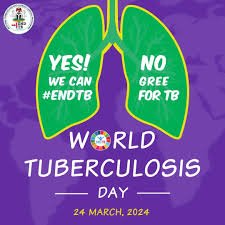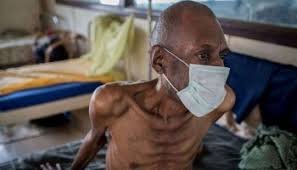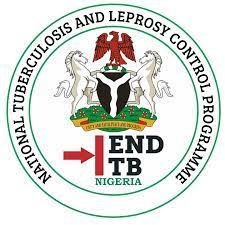Fresh outbreak of Tuberculosis is raising the alarm and calls for urgent action, Ogbodo Ozioma Favour reports in this Special Feature
Salient Rise of Tuberculosis
Africa being the world’s second- largest and second-most populous continent with its lively cities and dotting landscape is the salient rise of Tuberculosis which was considered erased in the world but its resurgence across Africa is becoming alarming particularly in Nigeria and it has become a global health crisis with an estimate of 10.6 million people contracting the bacterial infection in 2022 and same year, recorded a death toll of over 3 million people who died as a result of tuberculosis.
Africa accounts for 23% of Global TB Cases
According to the Africa World Health Organization (WHO) recent report, Africa accounted for 23% of all new and a quarter death toll in relation to TB cases.
Further, Nigeria is having the highest tuberculosis burden with over 268 people in the country dying daily and some are under reported which intensify high risk of transmission with an estimate, one miss case can transmit TB to 15 people yearly.
Resonating to this is the report from provisional data which estimates over 361 000 TB cases were reported in Nigeria and 9% of these are children. Overall, this marked a 26% increase in the number of cases compared with 2022.
This calls urgent need and funding in ending tuberculosis in Nigeria.
TB 9th Leading Cause of Death Worldwide
Tuberculosis (TB) is the ninth leading cause of death worldwide and leading cause of a single infectious agent. It is caused by bacteria (Mycobacterium tuberculosis) it most often affects the lungs. TB spreads through the air when people with lung TB cough, sneeze or spit. That is, a person only needs to inhale a few germs to become infected.
Several factors that have contributed to the spread of TB which include; Living in a poor ventilated area. This means, lack of proper ventilation in living spaces can increase the concentration of airborne bacteria and make transmission more likely.
ITO Report
According to reports from the International Trade Organization, Nigeria has the worst healthcare in Africa and only less than 5% of the country’s population with an estimate to reach 400 million by 2025 is enrolled in NHIS and this has hastened the spread of any form of infection including tuberculosis,
this infection is set to strive quickly for months from lack of treatment and sensitization thereby accelerating the development of drug resistant trains of TB.
NTBLCP Report
According to the National Tuberculosis and Leprosy Control Programme (NTBLCP), at least one person in Nigeria dies from Tuberculosis (TB) every five minutes.
With increasing cases and death toll daily despite it being curable. It’s safe to say Tuberculosis is one of the top infection killers in the world.
Tuberculosis is the leading cause of the death of people with HIV and also a major contributor to antimicrobial resistance.

WHO Diagnosis
According to WHO, diagnosis of TB and drug- resistance remains a challenge with a third of people with TB and two- thirds of people with the drug resistant TB not being detected this has posed a higher risk of transmission.
According to the Institute of Human Virology, Nigeria. It’s confirmed that tuberculosis treatment is free in Nigeria and presently, Oyo, Ogun, Lagos and Osun States have 539 DOT facilities, 75 DOT microscopic laboratories and ten Gen Xpert sites in the states and it’s is currently funded by the US government and the National TB program.
Laraban Shehu, National Coordinator of NTBLCP has expressed concerns during the 2024 pre-World TB Day Press conference that TB burden is borne significantly by Nigerians, explaining that 71% of people with TB face catastrophic cost as they spend over 20% of their income in treating Tuberculosis and 70% of the TB budget is not funded, he expressed a significant portion of the remaining 30% is funded by donors.
In relation to this, the Federal Ministry of Health and Social Welfare has affirmed that the present administration is fully committed to ending the TB epidemic in Nigeria.
Professor Muhammad Ali Pate, the coordinating Minister of health and social welfare has said during the commemoration of the World TB Day with the theme “Yes we can end TB, no Gree for TB, Check Am O!” has said there is an effort of creating more expansion TB treatment services (DOT centers) to about 22,000 health facilities with high model GeneXpert equipment.
Note that Nigeria adopted GeneXpert as the first diagnostic tool in 2016 for tuberculosis testing and currently 1560 modules are installed in all 36 states of the federation and the Federal Capital included but its average utilization rate is 27%.
Dangana Jonathan
Africa Health Report (AHR) spoke to Dr. Dangana Jonathan, a public health specialist and a professor at Babcock University who emphasizes that though we are confronted with the reality of tuberculosis in Nigeria but what we are actually dealing with is far beyond which is, “we are dealing with issues of anti- microbial resistance globally. That is, when the body is no longer responding to treatment”.
For instance, this is mainly from the discontinuation of prescribed drugs
for a designated illness without completing the dose.

Globally, there is no solution anywhere and so one of the biggest outcries is that people should be encouraged to be consistent with their medication.
Community Health Initiatives
Further, we employ public health means to help people to mitigate this. That is, to help people not get the disease in the first place and this is through community health initiatives and one of the greatest is the World Health Organization WASH program, which primarily deals with sanitation, human cleanliness, in my opinion, many of us are very faulty at this.
Preventive Measure
In a nutshell, a formidable preventive measure is to encourage anyone with ailment to be consistent in their medication for a particular ailment and make sure the dose is completed as prescribed.
Indeed, as a country, there’s also an outlet that is saddled with the responsibility of research including the issue of TB and as a country, one of our biggest challenges is not that we’re not short of ideas, but we don’t put in structures to sustain the idea.
Firstly, one major key factor is the outcry of funding by these centers as such the center is helpless to be able to do what she is supposed to do.
Secondly, even the little that they have been able to, to what extent have the population been able to listen to them? In other words, have they been able to even do an outcry of what the problem lies? You know, I’m saying that those centers are those kinds of places like the Nigeria tobacco control entity in the outcry is more or less like what you have in weather forecasts, you know, weather forecasts will tell you what is to come the next day and in some instances, you can even find the weather forecast for a whole week and proceeding under under preceding week. So, have this sentence been able to give an outcry to give a forecast to say this is what is to happen, so that even if at the governmental level, solutions are not forthcoming, human beings can be given to do what they can do to manage themselves.
Climate Change Impact
Thirdly, is the issue of Climate Change which literally affects every human endeavor and you can only see us not the direct cause. So what do I mean by this?
For instance, If you say food is salty, it means that there is the presence of plenty of salt okay but then the food does not taste well and can be the absence of some certain key ingredients, and salt might be just one of those ingredients. So I’m saying that why climate change may not necessarily have been a direct cause.
You cannot directly link climate change to TB and however, you cannot excuse climate change to the reality of TB and climate change brings to bear a number of issues that you want to close, though global space is dabbling it.
For example, if you have developed a vaccine, you have developed a drug that can work during spring, for instance, spring now is that weather that is after harmattan after a winter, before you get into into summer, that is in the Western world but in our own case, you only have harmattan. That is, the window between December and April before the rain starts.
Now in the western world, they do not have that but they’re experiencing some places in the extended winter, that is winter has prolonged longer. So in other words, if you have something that is to work within that period, now winter has extended, so that cannot be as effective as it should and what is causing that extension is climate change. So while we may not be able to have a direct link however, climate change also has its own footing in these crises. Is there any country that can have protection towards climate change? Absolutely not because it’s climate So we need to focus on the global collective. However, we have some clear cut indicators of major contributions to climate change which includes, carbon footage and it involves activities that we do within the market activities, pastures that, in terms of managing livestock, they can all contribute to come on this footage that will add more to the atmospheric situation. Then you also have the industries and airlines.



